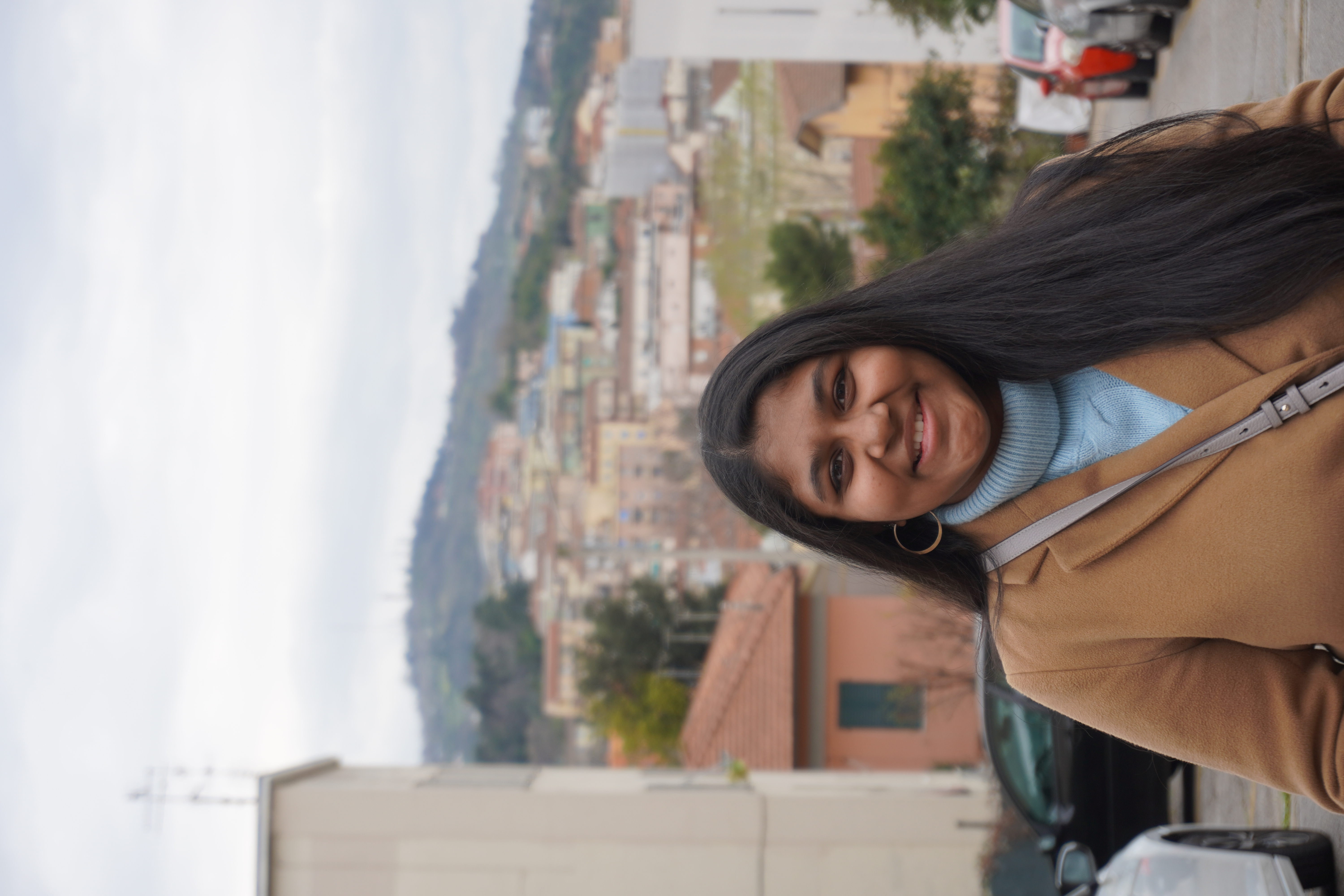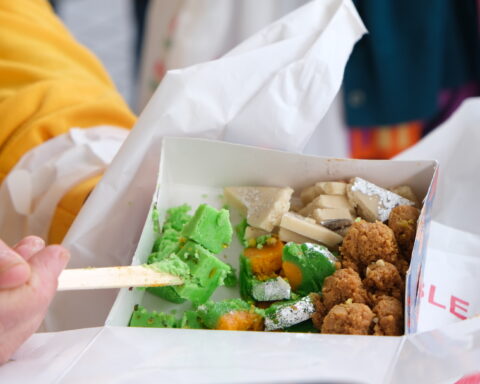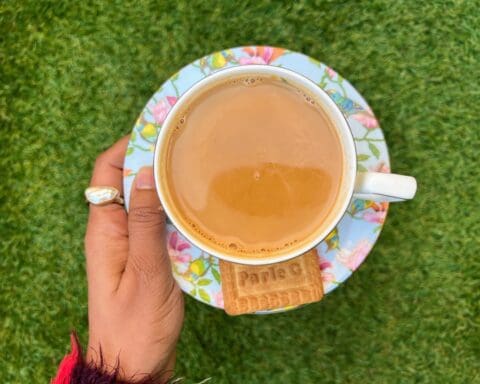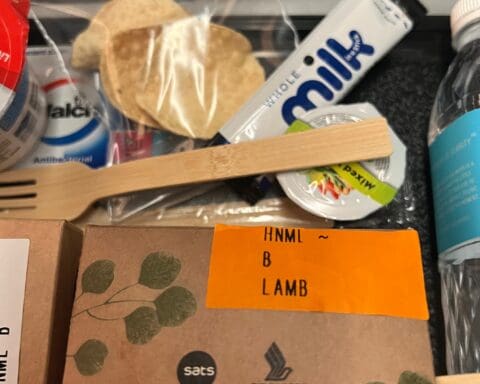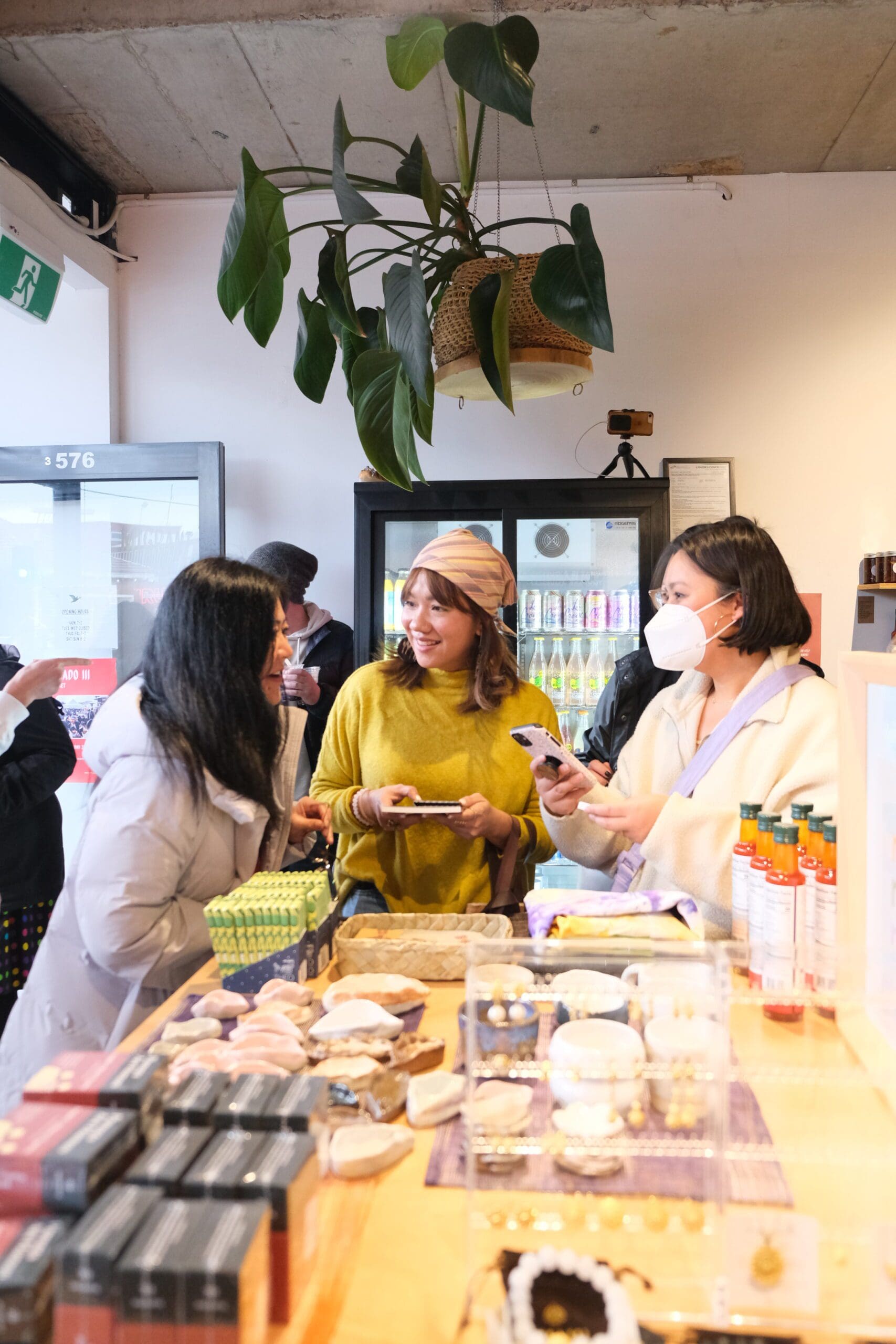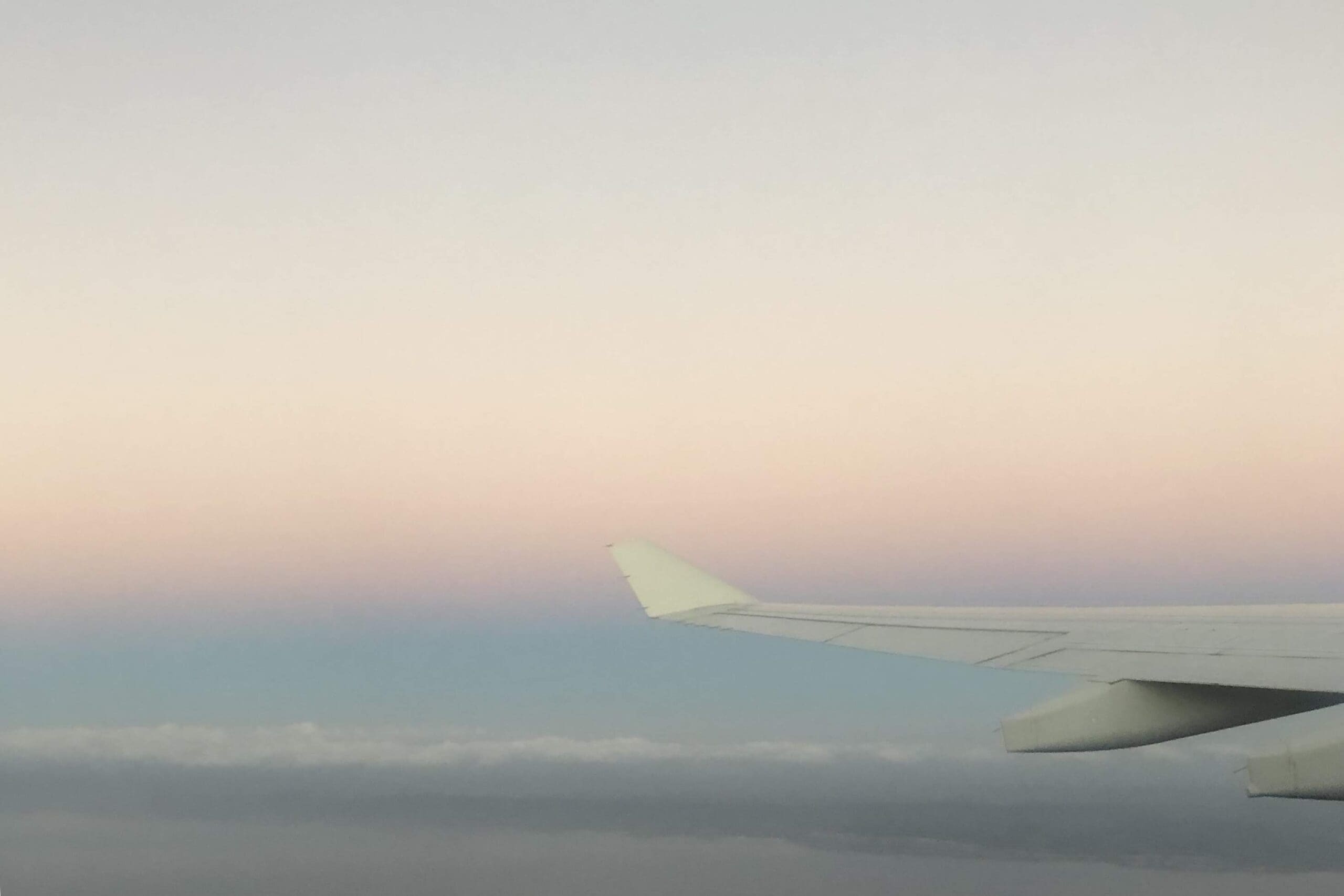Around the same time last year, Nila’s reel popped up on my IG for the first time. She captioned it as “some bits from the past weeks!”. It legit made my day (and I still remember watching it over and over that day). Obvs, I have followed her on the internet ever since and have learned so many interesting tidbits about (my own) Indian culture.
One of my absolute favourite thing from binge-ing on her podcasts was Nila using “Spicy Sambar” or “Sexy Semiya” as terms of endearment, which I have adopted into my daily vocab.
Thank you for all the goodness Nila; I am so excited to feature you on the blog during South Asian Heritage Month. Let’s get into it!
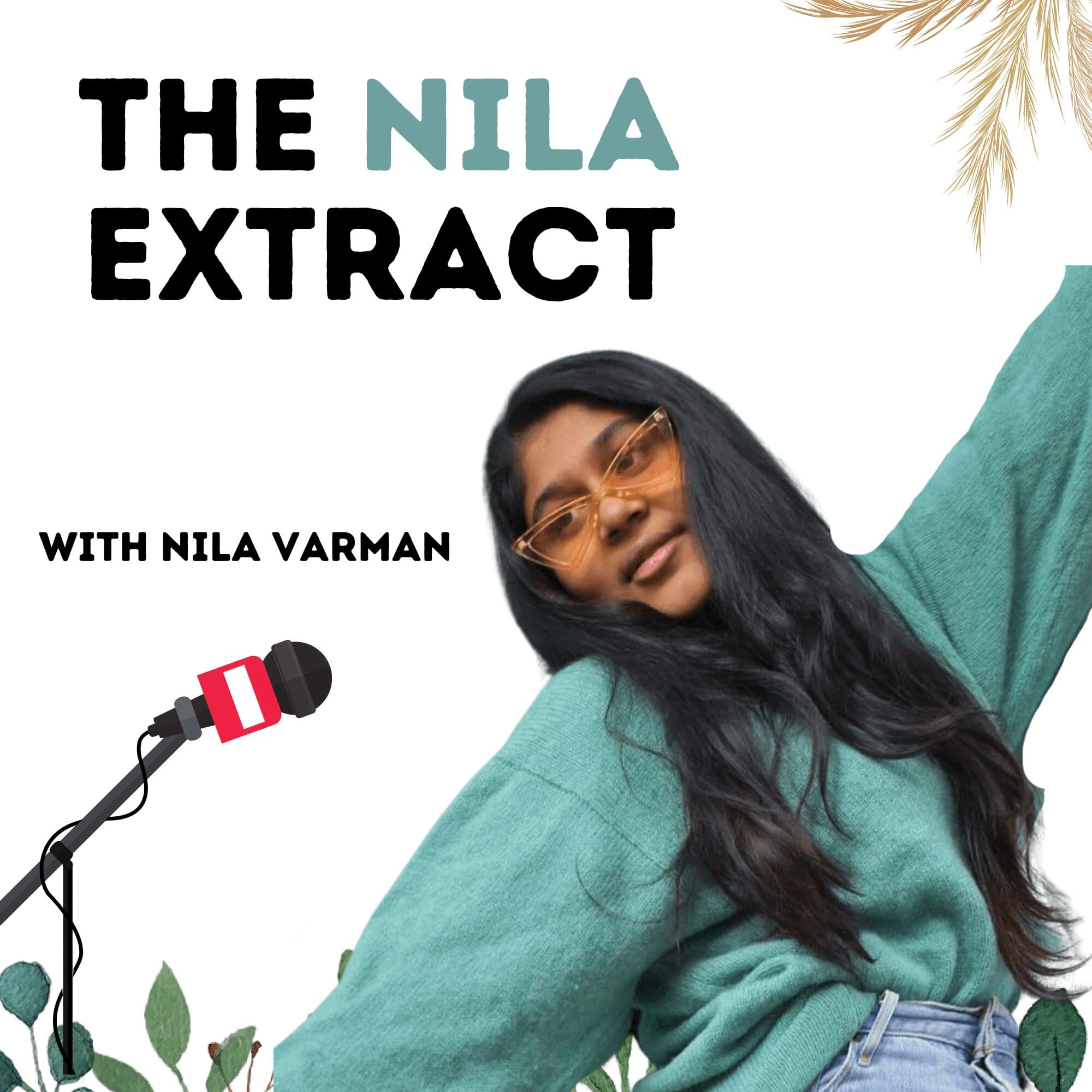
KK: Congratulations on your award-winning podcast, The Nila Extract! I am so proud to see another thriving South Indian woman. Why did you choose podcast as your medium, and what is your vision for it?
Nila: Thank you so much for your warm wishes! I love how radio and podcasts are widely accessible to various communities from all over the world. Both facilitate a new way in which a plethora of marginalised groups and those creating social changes can be represented, heard, and amplified. I started my show at URN (University Radio Nottingham) during the lockdown, and I’ve adored broadcasting live from the studio – it helps that the mic is a great listener (it doesn’t really say anything back!).
KK: As an Indonesian Indian, I am curious about how similar or different we are in nurturing our Indian heritage compared to the country we were born in or call home. Would you care to share your experience navigating between the two cultures?
Nila: I have always walked on a sort of balance beam between my very South Indian and, at the same time, very British upbringing. I love both and identify strongly with both parts of my life. My Amma (mum) and Appa (dad) always taught my brother and me how proud we should be of our Tamil identity, how to love the brownness of our skin, and how to be proud of where we come from even though we weren’t born there, and how we may need to stand our ground in the future if someone treated us differently because of our skin.
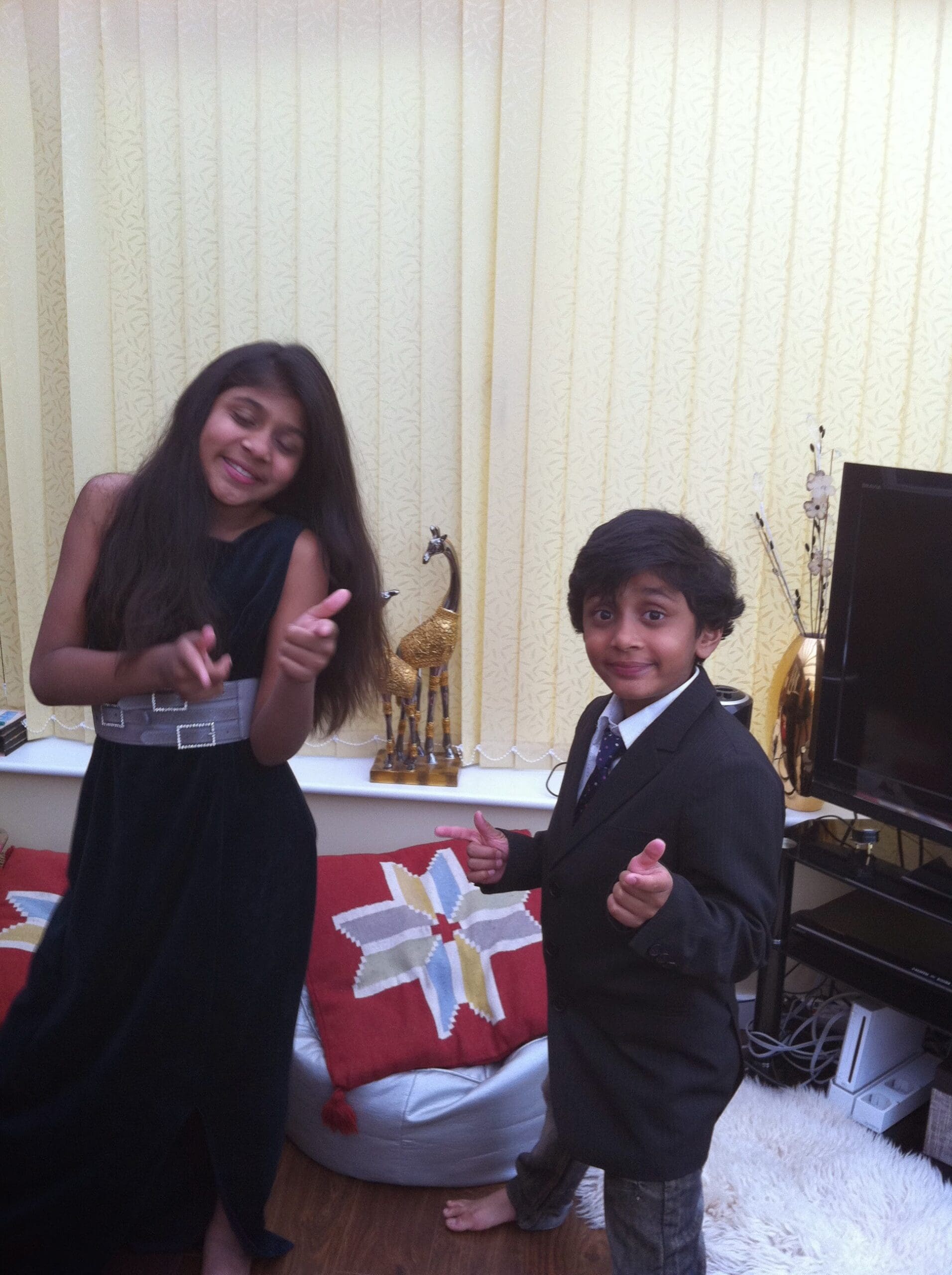
It has been tough navigating my identity at times, and I think the whole “who am I really?” question is one I, and I’m sure many will continue to ask throughout their lives with every change that happens around us. But I’m okay with that; I’m excited to keep exploring parts of my heritage and how it intertwines with other aspects of my identity.
KK: What is your favourite Indian/Tamil cultural festival? Mine is Diwali just because that’s the only Indian festival I was exposed to growing up in Indonesia, but lately, I have been curious and reading up on Navaratri, which I find pretty empowering.
Nila: My favourite festival is the Tamil harvest festival, Pongal! I look forward to it every single year – Pongal occurs every year in the month of ‘Thai’ when crops like rice, sugar cane, and turmeric are harvested. The food is amazing, the traditions are something I always cherish, and the best of all is that it is celebrated over four days!
KK: What is your go-to South Indian comfort food? Can you cook it? If yes, how often do you make it? If not, how do you obtain it?
Nila: I love my mum’s Biriyani, so much so that I’m now permanently biased; but other than that, I love her Chicken and Potato Kozhambu (curry), which I have recently started to make once every few weeks, my ammama’s Mango Pachidi (Mango Chutney), and of course, Appam (South Indian pancake) and Thengai Paal (sweet coconut milk) which I have no idea how to make, but when I find somewhere that makes it, I go crazy!
I love cooking, so I’m always trying to make more South Indian dishes every week – so far so good.
KK: I regret to say that there are many parts of Indian culture that I am not at all familiar with, including Carnatic music, which I first learned from your podcast. Would you tell us a bit more about it, and where should I start to get more exposure to it?
Nila: Carnatic music is incredible. I’m so honoured to learn more about it myself. I sing Carnatic songs and play Carnatic violin and veena.
Carnatic music is South Indian classical music which I find incredible as it has more than 80 fundamental ragaams (scales), from which a plethora of other raagams is derived from. I would recommend listening to various Carnatic playlists, both instrumental and vocal – it is so calming and beautiful.
KK: I feel like many traditions are still work-in-progress in Indian culture, from colourism to semi-forced arranged marriage, but tell us about a practice in Indian culture that you love the most.
Nila: I love putting coconut oil in my hair – I also love it when my mum applies it for me. It is so intimate and calming too. I used to be so embarrassed about applying coconut oil in my hair because I used to get teased and othered by my South Asian peers due to my Tamil heritage, but it is now a tradition I am trying to fall back in love with.
KK: You mentioned on your podcast to hit you up with some South Indian films recommendation. What’s one of your favourite South Indian movies that we can watch on Netflix? What’s it about? Why do you love it?
Nila: I think on my version of Netflix in the UK, recommend the movie Oththa Seruppu Size 7– it is exceptionally filmed.
KK: If you were to be uprooted and moved to India, where would you want to live if you can live anywhere, and what would you want to be/work as if you can be or work any job? If asked the same question, my answer would be to Goa (though I have only been there for a weekend), and I’d like to be a rich housewife who keeps a sustainable farm.
Nila: I would love to live in Kanchipuram, maybe do radio stuff and also have a veggie garden!
KK: Currently, the UK is celebrating South Asian Heritage Month (18th July – 17th August 2022); I’d love to hear your thoughts on how can we, living in other parts of the world, honour our South Asian heritage in our daily lives.
Nila: I think it is important to provide ad amplify the voices of those without a platform to share their stories. Make sure to diversify your feed with more South Asian creators, educate yourself, listen to lived experiences and ask questions!
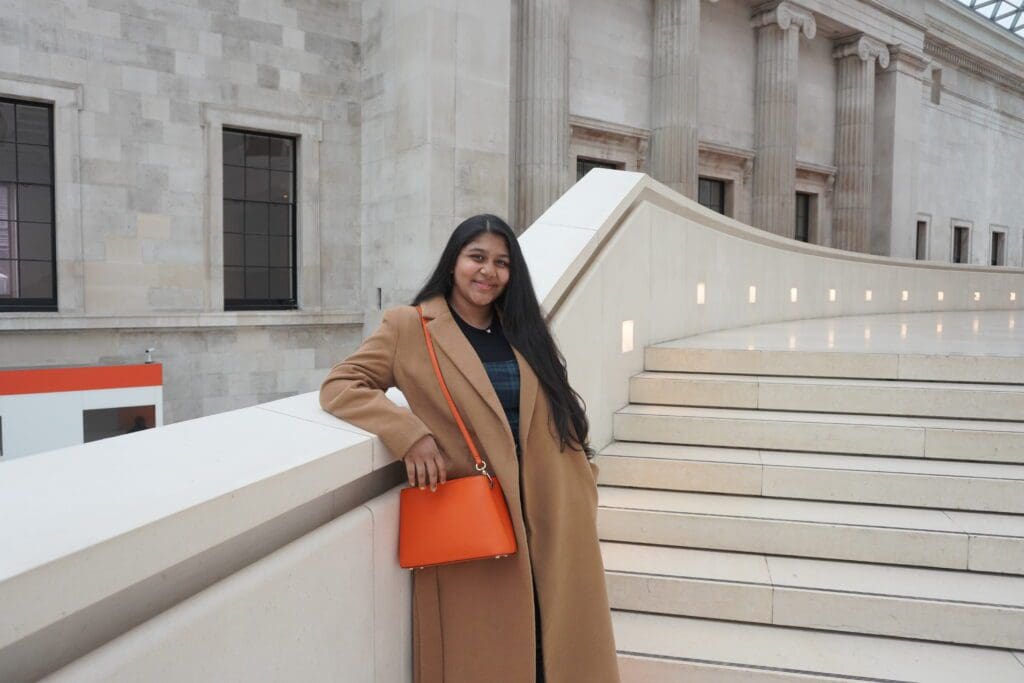
KK: A question with a personal agenda, I am planning a trip to London and love to get some local recommendations from you.
Nila: Oh, that is a tough one! I recommend hitting up all the markets, checking out some of the free events (sometimes South Asian related) at the Barbican, beigel bake in Shoreditch, and taking a long walk along the South Bank.
KK: Last question, for now, if you can interview any South Indian for your podcast, who would you choose and what one question would you want to ask them?
Nila: I would love to interview Ilaiyaraaja (Indian film composer, singer and lyricist) because other than being a fanatic of his work, I would love to ask him about his work, process and insight into Carnatic/classical music.
Thank you so much Nila – for being an Indian culture powerhouse and for expanding my mind, heart and world through your podcasts and IG. I am ready to get the Spicy Sambar merch whenever you drop it.
Binge-ing on Nila’s podcast is an act of self-care. Her voice, opinions and guests are a delight to have as a virtual companion while going about your own lives.
Here are some of my favourites to start with: Not Indian Enough (the first episode guaranteed to get you hooked), De-Graded (of the horrible time she had studying in Singapore), The Self Love Club, You Are Enough, Every Body is A Good Body and Christmas Special. Enjoy!
